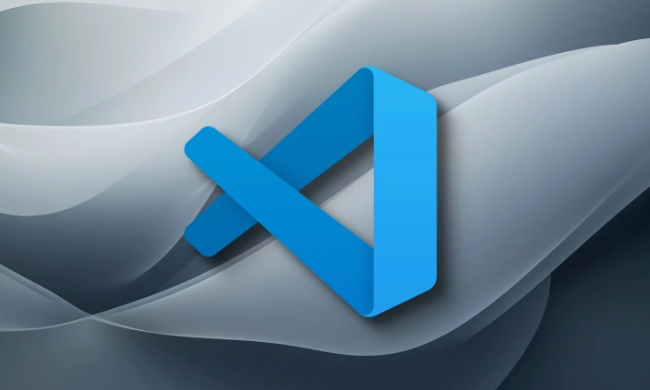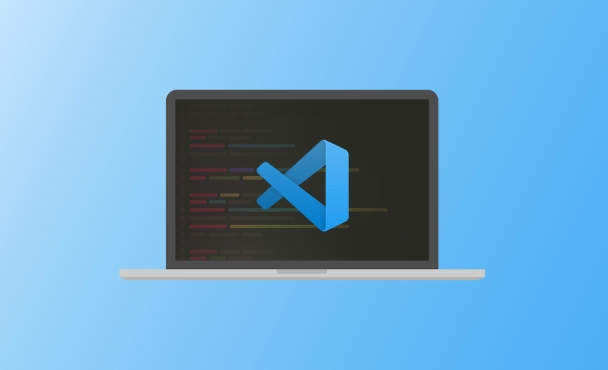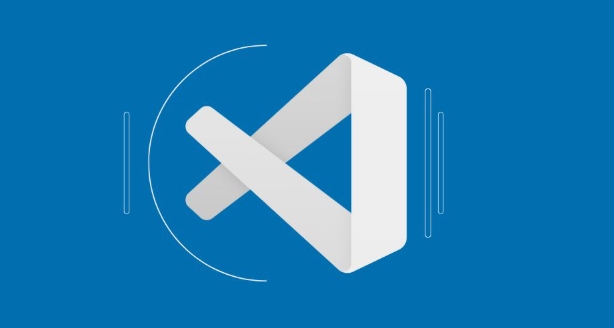When encountering the permission problem of failed installation or update of VSCode extensions on Linux, the solution is as follows: 1. Check the permissions of the extension directory, the path is usually ~/.vscode/extensions/ or ~/.config/Code/ to see if it is occupied by root; 2. Use sudo chown -R user:user to modify the ownership of the directory to the current user; 3. Avoid using sudo to start VSCode to prevent the new file from belonging to root; 4. If it is invalid, delete the extension directory after backup configuration and reinstall it.

If you encounter permission errors when installing or updating extensions using VSCode on Linux, don't worry, this situation is actually quite common. Most of the time the problem is that the permissions of folders or files are not set correctly, especially if you have operated certain files with root permissions before. Let me talk about how to solve this problem.

Find out which directory is wrong
The VSCode extension is usually installed in the .vscode folder in the user directory. The specific path is generally as follows:

~/.vscode/extensions/
Sometimes it may be ~/.config/Code/ or other similar paths, depending on which distribution and version of VSCode you are using. You can first check whether this directory exists and check its permission status:
ls -la ~/.vscode/extensions/
If you see that some files or folders have root (for example, they are root root), then it is basically its problem.

Use chown to fix permission issues
The most direct way is to change the ownership of the entire .vscode directory back to the current user. Assuming your username is user , it can be run:
sudo chown -R user:user ~/.vscode
This recursively modifies all subfiles and subdirectories owners for yourself. After this, VSCode can read and write the extended directory normally.
Tip : If you are not sure which directories you should change, you can also modify them together
~/.config/Code/:sudo chown -R user:user ~/.config/Code/
Avoid similar problems in the future
Many times this kind of problem is caused by accidentally starting VSCode with a command like sudo code . Once the editor is opened with root permissions, the files it creates belong to root, and ordinary users will have an error in accessing them.
So it is recommended to develop a habit:
- Start VSCode and do not use
sudo - If you need to edit system files, you can use
sudo -ito switch to the root environment before operating the specific file, instead of directly running the entire editor as root
If it really doesn't work, reinstall the expansion directory
If the above method is not working, or if you find that the extension directory is already a little "chaotic", you can also consider cleaning up the installed extensions:
- Back up your important configuration or extension (can be noted through the "Installed Extensions" list of VSCode)
- Delete the entire extension directory:
rm -rf ~/.vscode/extensions/
- Let VSCode rebuild the directory automatically and reinstall the extension
Note: This step is more radical and is only recommended when the previous method is invalid.
Basically these are the methods. If you encounter permission problems, don’t panic. Check the path, change the ownership, and avoid misoperation, which can solve most situations.
The above is the detailed content of Fix VSCode extension permissions error on Linux. For more information, please follow other related articles on the PHP Chinese website!

Hot AI Tools

Undress AI Tool
Undress images for free

Undresser.AI Undress
AI-powered app for creating realistic nude photos

AI Clothes Remover
Online AI tool for removing clothes from photos.

Clothoff.io
AI clothes remover

Video Face Swap
Swap faces in any video effortlessly with our completely free AI face swap tool!

Hot Article

Hot Tools

Notepad++7.3.1
Easy-to-use and free code editor

SublimeText3 Chinese version
Chinese version, very easy to use

Zend Studio 13.0.1
Powerful PHP integrated development environment

Dreamweaver CS6
Visual web development tools

SublimeText3 Mac version
God-level code editing software (SublimeText3)

Hot Topics
 How do I open the integrated terminal in VS Code?
Jun 12, 2025 am 11:29 AM
How do I open the integrated terminal in VS Code?
Jun 12, 2025 am 11:29 AM
The most common method to open a VSCode integrated terminal is to use keyboard shortcuts. By default, press Ctrl (backtick key) to open or focus the terminal panel; Mac users usually use Cmd. If the shortcut keys do not work, which may be a keyboard layout or custom settings issue, you can check or change it in Keyboard Shortcuts under the File menu. In addition, you can switch the terminal panel by opening it in the top menu "Terminal>New Terminal" or clicking the terminal icon in the activity bar on the left. If the icon is not displayed, right-click the activity bar and make sure "Terminal" is checked. You can also right-click in the editor tab and select "Open in Integration Terminal" to run the command in the directory where the current file is located or the project root directory. This method is suitable for execution.
 How do I use the 'Find All References' feature in VS Code?
Jun 14, 2025 am 12:03 AM
How do I use the 'Find All References' feature in VS Code?
Jun 14, 2025 am 12:03 AM
The"FindAllReferences"featureinVSCodehelpslocateeveryreferencetoasymbolacrossaproject.Touseit,right-clickonthesymbolandselect"FindAllReferences,"orpressShift F12(Windows/Linux)or? F12(macOS).Ensureyourcursorisontheexactsymbolnamea
 How do I pull changes from a remote repository in VS Code?
Jun 13, 2025 am 12:12 AM
How do I pull changes from a remote repository in VS Code?
Jun 13, 2025 am 12:12 AM
TopullchangesfromaremoteGitrepositoryinVSCodewithoutusingtheterminal,useoneofthreemethodsstartingwithaccessingtheSourceControlsidebar.1.OpentheSourceControlsidebar(Ctrl Shift G),clickthethreedots(...),andselect"Pull".2.Usethestatusbarbyclic
 How do I use VS Code with React?
Jun 18, 2025 am 12:14 AM
How do I use VS Code with React?
Jun 18, 2025 am 12:14 AM
TooptimizeReactdevelopmentinVSCode,installessentialextensionslikeESLintandPrettierforcodeconsistency,setupanewprojectusingCreateReactAppviathebuilt-interminal,organizefilesmodularlyundersrc/withseparatecomponentsandpagesfoldersforscalability,utilizeE
 How do I use the 'Find and Replace' feature in VS Code?
Jun 19, 2025 am 12:06 AM
How do I use the 'Find and Replace' feature in VS Code?
Jun 19, 2025 am 12:06 AM
The best way to make batch modifications in VSCode is to use the Find and Replace feature. 1. Use "Find and Replace" in a single file: Press Ctrl H to open the panel, enter the search and replace content, and click "Replace" or "Replace All". 2. Search across multiple files: Press Ctrl Shift F to open the search tab, expand the replacement section, and select the replacement operation for a single file or entire project. 3. Use advanced options: such as case sensitivity, full word matching and regular expressions for more precise control, such as matching numbers with \d or using capture groups for complex replacements. This feature significantly improves code maintenance efficiency through fast and precise editing.
 How do I download and install VS Code on my operating system?
Jun 24, 2025 am 12:04 AM
How do I download and install VS Code on my operating system?
Jun 24, 2025 am 12:04 AM
TodownloadandinstallVisualStudioCode,firstchecksystemrequirements—Windows10 (64-bit),macOS10.13 ,ormodernLinuxdistributions—thenvisittheofficialwebsitetodownloadthecorrectversionforyourOS,andfollowinstallationstepsspecifictoyourplatform.Beginbyensuri
 How do I view the Git history in VS Code?
Jun 26, 2025 am 12:09 AM
How do I view the Git history in VS Code?
Jun 26, 2025 am 12:09 AM
Viewing Git history in VSCode can be achieved through the built-in Git extension. The specific steps are as follows: 1. Open the Git sidebar on the left, view the list of recent submissions and select a specific submission; 2. View the file modified by the submission and line-by-line differences in the right panel, and right-click the file to perform restore changes and other operations; 3. Right-click the file in the editor and select "Open Timeline", and use the timeline view to view the historical change record of the file. These steps allow you to easily track project changes without relying on external tools.
 How to set a default formatter in vscode settings?
Jun 27, 2025 am 12:01 AM
How to set a default formatter in vscode settings?
Jun 27, 2025 am 12:01 AM
To set the default formatting tool in VSCode, you must first install extensions of the corresponding language, such as Prettier, Black or ESLint. 1. Open the settings and search for "DefaultFormatter", edit the settings.json file to specify the default formatting tools for each language, such as using "esbenp.prettier-vscode" to handle JavaScript, and "ms-python.black-formatter" to handle Python. 2. Optional global settings, but it is recommended to configure them separately by language. 3. Enable "FormatonSave"






